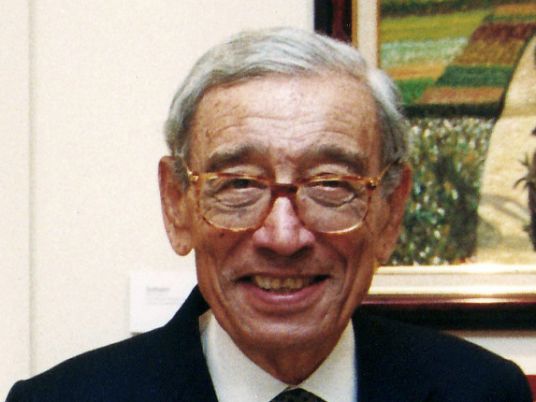
In an interview with Al-Masry Al-Youm, former UN Secretary-General Boutros Boutros-Ghali spoke about the conflict in Yemen and a number of other diplomatic issues.
Q: What do you think of the Decisive Storm in Yemen, which was recently halted to give dialogue and negotiations a chance?
A: I have seen similar cases in Latin and Central America, where rebellions and uprisings against governments took place, followed by guerrilla and civil wars. For example, the civil war in El Salvador lasted from 1979 until 1992. In order to resolve the problem, the point is not to reach agreements as much as it is to make sure differences would not arise again. This is where preventive diplomacy is important.
Q: Why did the Arab League not come up with an initiative to resolve differences in Yemen, while Iran did?
A: The Arab League may have come up with an undeclared initiative. These are sometimes more effective. Perhaps the reason for not declaring its initiative was because there are certain parties that want the conflict to continue, as is the case in Syria.
Q: What about Egypt’s involvement at this stage?
A: I do not know of any Egyptian diplomatic moves, but I am confident that Egypt is intervening quietly. It is better for any Egyptian involvement not to be declared. We should leave this matter to others.
Q: Egypt is facing many difficulties, most importantly the war on terrorism. How do you see the situation?
A: The war on terrorism will take long, but I will repeat what I said before dozens of times about the population growth being more dangerous than terrorism. By the end of this year, the population will increase by two million people. How will we handle that? I am not calling for strict birth control methods like in China, but there must be more privileges for the first child than for the second and the third.
Q: Would the new capital be a solution?
A: I am not against a new capital. Other countries have done the same thing. But we have chosen a location that is only 60 kilometers from the heart of Cairo. Brazil's new capital was 1,000 km away from the old one, whereas ours would be a mere extension to Cairo.
Q: You said before that Egypt’s relations with African countries faced setbacks as a result of indifference and neglect on the part of President Mubarak and his regime. How do you see the relations now?
A: There is certainly a significant change, but we need to do more. For example, we should attend national holiday celbrations in African countries, invite African presidents to spend holidays in Egypt or send doctors to help if an African president is sick. We have neglected Africa. It is time for us to look to the South, with whom we share common concerns, instead of always looking to the North.
Q: Did you give any advice to President Sisi in this regard?
A: No, I didn't. I am 93 years old. Advice needs studies and preparation. I am too old for this now. But I met President Sisi before and after he won the elections. I support him because he is a man faithful to his country.
Q: Are you coming back to Cairo soon?
A: Not before the end of the year. I am preparing for a conference in Cairo at the end of this year, about the protection of women during armed conflicts, in collaboration with UNESCO.
Q: How is your health?
A: I'm very well, thank you.
Edited translation from Al-Masry Al-Youm
